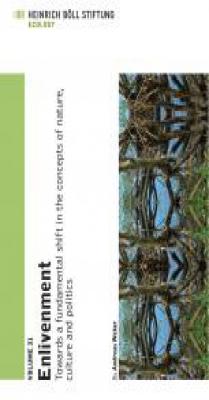A New "Bios" for Life
People often call for "changing the system" and seek to reform the "free market" approach that turns everything, including life itself, into a commodity. But it is impossible to alter our prevailing "operating
system" for economics, politics and culture if the underlying "bios" – our unexamined, foundational assumptions about reality – remain the same. This is our biggest problem today: our understanding of
"bios" -- the nature of life itself –- is wrong.
Our civilisation operates as if reality is all about organising inert, dead matter in more efficient ways. This is the heritage of the Enlightenment, which claims that physical bodies are entirely separate from
immaterial minds. Once this assumption is made, no serious systemic change is really possible, as much as we might try. This viewpoint has profound implications for what we call "environmental
protection."
Enlivenment as Enlightenment 2.0
For the last 200 years, scientific progress – and all explanations of biological, mental and social processes – is based on the smallest possible building blocks of matter and systems. It advances through
analyses that presume that evolu-ion in nature is guided by principles of scarcity, competition and selection of the ttest. Rational thinking is an ideology that focuses on dead matter. Should it be so surprising,
then, that the survival of life on our planet has become the most urgent problem?
To suggest a more promising, alternative future, this essay proposes a new paradigm of "bios" called "Enlivenment." Based on recent research findings in the biological sciences, the idea of Enlivenment
explains how nature – and our role in it – is irrefutably individualistic, cooperative, and centered on experiences and meaning. The world is not simply an elaborate machine driven by impersonal macro-
forces. It is alive! From an Enlivenment perspective, nature itself is a living commons.
Empirical Subjectivity and Poetic Objectivity
The biosphere is not just the result of various forms of blind competition, but springs from the commoning activities of a myriad of individual agents interconnecting in diverse ecologies of relationships. We need to reconsider "life" and "aliveness" as fundamental categories of thought. Enlivenment tries to supplement – not to substitute – rational thinking and empirical observation – the core practices of the Enlightenment – with the "empirical subjectivity" of living experiences, and with the "poetic objectivity" of meaningful expressions.
Andreas Weber
Enlivenment. Towards a Fundamental Shift in the Concepts of Nature, Culture and Politics. Böll Foundation, Berlin 2013.
Download the book here
Book review on David Bollier's Homepage
